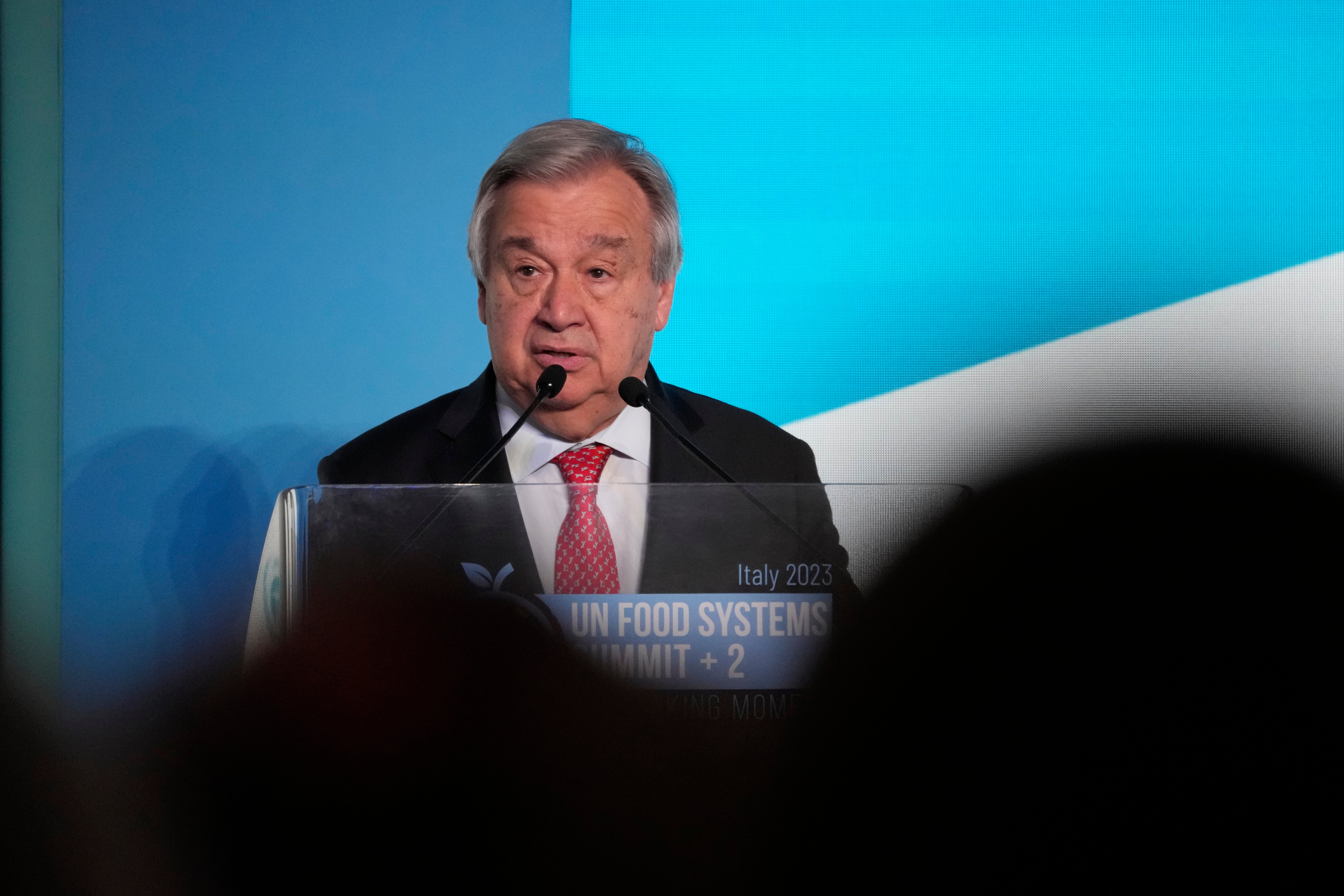UN chief urges deployment of police special forces and military support to combat gangs in Haiti
The United Nations chief is urging the international community to deploy a multinational force comprising “police special forces and military support units” to Haiti to combat gangs with sophisticated weapons and restore security to the impoverished Caribbean nation

The United Nations chief urged the international community on Tuesday to deploy a multinational force comprising “police special forces and military support units” to Haiti to combat gangs with sophisticated weapons and restore security to the impoverished Caribbean nation.
Secretary-General António Guterres said in a 12-page letter to the U.N. Security Council obtained by The Associated Press that “ Addressing the security situation in Haiti requires a range of coercive law enforcement measures, including active use of force in targeted police operations against heavily armed gangs.”
The letter was a response to a Security Council resolution adopted on July 14 asking Guterres to come up with “a full range of options” within 30 days to help combat Haiti’s armed gangs including a non-U.N. multinational force.
Guterres welcomed Kenya’s offer to lead an international force as well as renewed pledges of support from the Bahamas and Jamaica, and the announcement by Antigua and Barbuda that it is considering contributing to the force. He urged more countries, especially from the Americas, to contribute and “build on this new momentum.”
Gangs have overpowered Haiti's police, with experts estimating they now control some 80% of the capital, Port-au-Prince. There are only about 10,000 police officers for the country’s more than 11 million people, and more than 30 were killed from January to June, according to Human Rights Watch.
Guterres said the gangs have encircled the capital, effectively cutting roads from the north, south and east of the country, and violence is spreading to the Artibonite region in central Haiti and other areas, blocking the delivery of aid and goods.
He cited reports of gangs shooting people in public spaces and their homes, burning people alive in public transportation vehicles, mutilating and executing perceived opponents, recruiting children and using sexual violence and rape against women and girls.
“Gangs have become more structured, federated, and autonomous in their efforts to confront state authority, weakening state institutions, and consolidating control over the population,” the secretary-general said. “They target police stations, courts, prisons, schools, hospitals, and strategic installations such as ports, oil terminals and major roadways.”
Haiti’s Prime Minister Ariel Henry sent an urgent appeal last October for “the immediate deployment of a specialized armed force, in sufficient quantity” to stop the gangs. However, no country stepped up to lead such a force until Kenya’s offer in late July.
U.S. Ambassador Linda Thomas-Greenfield said on Aug. 1 that the United States would introduce a U.N. Security Council resolution authorizing Kenya to lead a multinational police force to fight the gangs and provide 1,000 officers. However, she gave no timetable.
Since its offer, Kenya’s police force has come under scrutiny especially by human rights watchdogs, for alleged killings and torture, including gunning down civilians during the country’s COVID-19 curfew.
As the U.S. was considering Kenya to lead the force, it was also openly warning Kenyan police officers against violent abuses.
Guterres said the Haitian National Police “most concerningly” face persistent reports of gang infiltration.
The force lost 774 officers during the first half of the year – “a staggering loss compared to an average attrition of around 400 police per year in the past,” he said. And the state of police infrastructure is “dire,” with around 40 of its 412 premises nationwide unusable “due to gang territorial control.”
Guterres made clear in the letter that “Haiti’s current context is not conducive to peacekeeping” by the United Nations.
He said law and order must be restored and human rights abuses and violence reduced “by deterring, neutralizing, and disarming heavily armed gangs capable of mounting robust resistance to anti-gang police operations.”
Guterres stressed that securing strategic installations and major roadways to restore freedom of movement and re-establishing the government’s presence to restore services requires “the robust use of force” by a specialized multinational police force.
In parallel to deploying such a force, he said there are two potential options for the U.N. – to provide logistical support to the multinational force and the national police, and to strengthen the U.N. political mission in Haiti to expand its mandate to train and advise the national police and create “an enabling environment” for long-delayed elections and the restoration of democratic institutions.
Given the dire situation in Haiti and the need for security, Guterres said both options may be required to maximize the impact of a multinational police force.
Bookmark popover
Removed from bookmarks